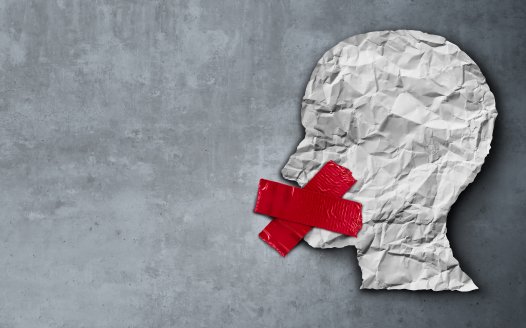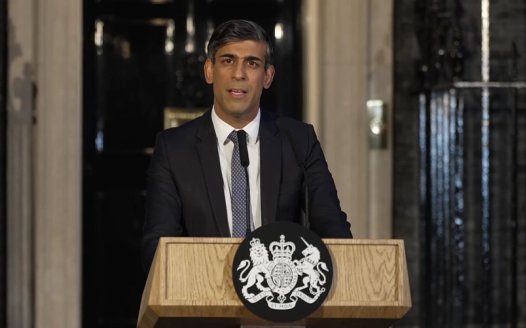The Bishops, the Catholic vote and the Referendum
Posted: Fri, 10th Oct 2014 by Alistair McBay
Alistair McBay argues that a growing political alliance between the leadership of the Catholic Church in Scotland and SNP has implications which stretch far beyond the Referendum campaign and threaten to revive religious identity politics.
"Most people still paid lip service to religion, but Catholicism was beyond the pale. Its extravagant statues with bleeding hearts and crowns of thorns, its Latinate ritual, its Irish Priests and its orientation to Rome made it highly unBritish, and therefore suspect. Catholics lived in self-imposed 'ghettoes': we socialised together, went to separate schools, did not attend Protestant services and were taught to hold aloof from the non-Catholic mainstream."
So said one-time Carmelite nun Karen Armstrong about growing up a Catholic in post-war Britain, in her autobiography The Spiral Staircase.
Armstrong was raised in the West Midlands, but could have been talking about 21st century West Scotland with its own Catholic 'ghettoes' and 'separate schools' throughout the land and enduring sectarianism problem. I always recall Armstrong's words when the Catholic Church in Scotland makes its regular claims of prejudice when statistics on unemployment or poverty are published. While no doubt bigotry lingers (beyond Old Firm fans serenading each other at the Ibrox and Parkhead) Armstrong's remarks remind us that the Catholic leadership has been part of the problem too, and the solution requires a change in its attitude.
This question of attitude was recently in the spotlight thanks to the Scottish independence referendum, along with the question of the Catholic vote, assuming such a thing exists, and whether it would be a vote for independence or for union.
The changing attitude to politics amongst the Scottish Catholic hierarchy first reared its head in the Diocese of Motherwell exactly eight years before the date of the Referendum. Then the Scottish media was reporting on an intra-Catholic spat between Michael MacMahon, a Labour MSP, and the now retired Bishop of Motherwell, Joseph Devine. The Catholic MSP complained that Devine's new media adviser Gerald O'Brien, a former Tory spin doctor, was running a politically motivated and virulently anti-Labour campaign from the bishop's office.
This was followed by Bishop Devine's declaration in March 2007 for the Holyrood elections that he expected his congregation to vote "according to their conscience" but added that for the first time he would be indicating the party for which he was going to vote. Devine stated the Labour party had a "morality devoid of any Christian principles" and said he would be voting for the Christian People's Alliance, a "pro-family" and "pro-life" party, which was opposed to gay adoption, the burning issue at the time. The CPA polled just 0.7% of the vote, with just over 14,000 voting, 10,000 fewer than the BNP polled and 6,000 more than UKIP, for those interested in the detail.
Devine's declaration was a barometer for a much bigger issue, that Catholics felt they and their support at the ballot box had been taken for granted for a generation by Scotland's Labour administration, for which Devine warned that Labour would pay dearly.
The arch political opportunist Alex Salmond was quick to spot the chance to swing this seemingly floating Catholic vote behind the SNP and so embarked on a sustained and very public wooing of a Catholic hierarchy and flock traditionally wary of Scottish nationalism. With some Catholics believing SNP would continue to stand for 'Still No Pope' if independence was achieved. In Cardinal Keith O'Brien Mr Salmond found a man open and susceptible to such fawning attention and every bit a political opportunist in a similar mould. As historian Professor Tom Gallagher says, O'Brien "acted more as a cheerleader for the SNP than as a dedicated pastor keen to strengthen his church in an increasingly irreligious age."
Salmond's paeans to Cardinal O'Brien and the faithful are the stuff of legend – " Without the Catholic Church there would be no Scotland" was reinforced by the regular championing of Catholic schools as beacons of success to be aspired to by the apparently underperforming non-denominational sector, and by the Scottish Government's positioning of the Church as one of its key strategic partners. The SNP also argued that, had it had any say in the Westminster imposed gay adoption legislation, Catholic adoption agencies in Scotland would have been allowed to continue to discriminate against same-sex couples seeking to adopt.
There was of course a setback in this festival of mutual admiration when it came to the same-sex marriage legislation. Although as all the main parties supported it, the Catholic hierarchy was left devoid of choice. As it happened, all Catholic opposition imploded mightily with the O'Brien affair, all the more potent for this implosion being free of external input.
It has long been feared by the Catholic community that an independent Scotland would agree with Bishop Devine that Catholic schools were divisive and a contributor to sectarianism, and so 'their' taxpayer-funded schools would be consigned to history. Salmond had firmly established his credentials as a man Catholics could trust, committed to championing 'their' schools and their rights to discriminate in employment and admissions. Such was his success at courting Catholic favour that early in 2014 some commentators began suggesting that Catholics might hold the decisive Referendum vote. Prominent among them was historian Professor Tom Devine who claimed that Scots of an Irish-Catholic background were the religious group most likely to vote for independence, citing evidence from the 2012 Scottish Social Attitudes Survey. He talked of a "silent revolution" since the 70s in a community once fearful that an independent Scotland might turn out to be "a replication of Ulster." Historically, Catholics feared that devolution would lead to Presbyterian domination but the 2012 Scottish Social Attitudes survey showed 36% of Catholics and only 16% Presbyterians favoured independence.
However, Professor Devine's analysis drew criticism from a member of the Scottish Government's anti-sectarianism expert group, Dr Michael Rosie, who argued that rather than a shift in the Catholic vote, the evidence more accurately pointed to its disappearance. Dr Rosie believed that once other factors had been taken into account, such as gender, class and age, the notion of a Catholic vote disappeared and that Catholics "were not reducible to just their Catholicism, or their Irish heritage". The move to independence, he said, was better explained "by experiences of secularisation rather than through hackneyed religious truisms."
Other academics prominent in this debate included Professor Tom Gallagher from Bradford University who immediately after the vote accused the Scottish Catholic hierarchy of covertly supporting the Yes campaign. Gallagher had drawn much ire from an earlier Telegraph blog in which, in spite of his Catholicism, he declared his support for the Orange Order march in Edinburgh in defence of the union a few days before the Referendum. Gallagher's description of the Orange Order in Scotland as "a force for moderation' which had gradually discarded a sectarian agenda and now offered a Protestantism that was "pragmatic rather than confrontational" won him few friends among his own.
He suggested that the Catholic Church, mired in its own scandals of child abuse, sexually incontinent clergy and the O'Brien affair, had "splintered" and accused it of maintaining "a foolish silence" in the independence drive. This he said threatened to impoverish many ordinary Catholics and would probably result in the abolition of their schools, in spite of Salmond's glowing praise for them. He wrote this however before SNP Minister Roseanna Cunningham jumped the Referendum gun late in the game by promising that an independent Scotland would give Catholic schools "constitutional protection".
Another name that loomed large in the SNP Referendum campaign was that of Peter Kearney from the Scottish Catholic Media Office. It is no surprise that there is a strong connection between the Catholic hierarchy and the SNP. Kearney, a man famously disinclined to do the Hokey Cokey, was the SNP's one-timepolitical education and training officer, parliamentary candidate and deputy leadership candidate in 2000. Kearney enjoys a high profile at the SCMO, but not always for the right reasons. Aside from not putting his left foot in with the Hokey Cokey, he has been accused of too often raising the temperature of sectarianism in Scotland, and priests and laity have even written to the Scottish newspapers suggesting Catholic interests would be better served by Mr Kearney keeping his left foot out at all times.
Kearney's name appeared in the run-up to the Referendum as a contact for further information on a press release issued by former SNP leader Jim Sillars. This threatened pro-Union big business (BP, Standard Life, RBS) with a day of reckoning, including nationalisation, in the event of a Yes vote. As the Telegraph's Catholic journalist Damian Thompson put it, what was Kearney doing, apparently acting as press officer for Sillar's "menacing rant" while simultaneously working in a similar capacity for the Catholic Bishops of Scotland?
Professor Tom Gallagher followed his controversial Orange Order blog with another proclaiming his shock at the Church's failure to stay out of politics, while its media officer appeared to be doing a political Hokey-Cokey, directly supporting a former SNP leader's campaign while simultaneously stating that the Church for whom he worked "does not have a position on Constitutional settlement, which is an entirely civic matter". That seems at odds with the stated aim of the Catholic Church's Parliamentary Office "to aid the Church in contributing to the work of the Parliament in accordance with the principles of the Church's Social Teaching" and "to encourage Catholics to be aware of important political issues and to participate where they can in creating a Parliament which truly serves the common good." The well-known Catholic composer James MacMillan went public, too, with his disappointment that the bishops "had turned a blind eye to priests and officers of the Church who campaigned openly from one side in the referendum and said nothing about the disgracefully bullying tactics operated by thuggish nationalists who hounded down Catholic MP Jim Murphy in the streets."
Damian Thompson also wondered if Archbishop Tartaglia's "gruesomely sycophantic" letter to Alex Salmond on the latter's resignation had been penned by former SNP apparatchik Kearney, adding that he had "never seen a senior cleric suck up to a politician so shamelessly" as had Tartaglia to Salmond. James MacMillan was equally horrified by the "oleaginous" letter: "Cardinal O'Brien damaged the Church in sucking up to the SNP, who must regard some Catholics here as their useful idiots. There is no advantage to the church in being close to the guileful, ruthless politicians of our age, of any stripe. In the light of its disappointing Referendum behaviour, our Church will have to re-learn this again. From scratch."
It seems that the Catholic Church in Scotland has got itself mired in yet another controversy, damned if it does get involved in politics and damned if it doesn't, and with its laity at odds once again with the bishops and their staffers.
There are several lessons to be learned. One is that religious belief may not be the only benchmark by which an individual will caste his or her vote at election time, such that appeals to a bloc-vote may not reap the desired reward. Second, mutual admiration societies between political and religious leaders may not deliver as expected and can always backfire. Third, to paraphrase Shakespeare's Dromio of Syracuse in the Comedy of Errors, it should be remembered that those who sup with the devil should use a long spoon. But finally, it remains to be seen how Salmond's successors approach the Catholic Church and whether it will be business as usual. The Catholic Professor John Haldane, a consulter to the Pontifical Council for Culture, thinks not. "Whatever Salmond's true feelings," he says, "his successors are more of a mind with the progressive commentariat, which reviles Catholicism, than they are with the bishops whose role it is to protect and promote it".
We shall see.







